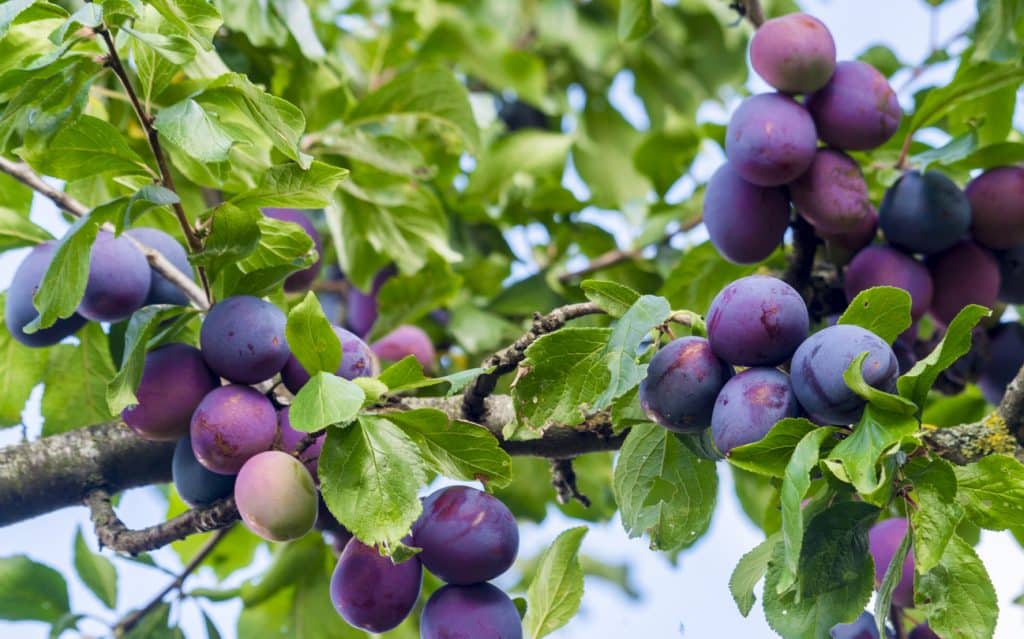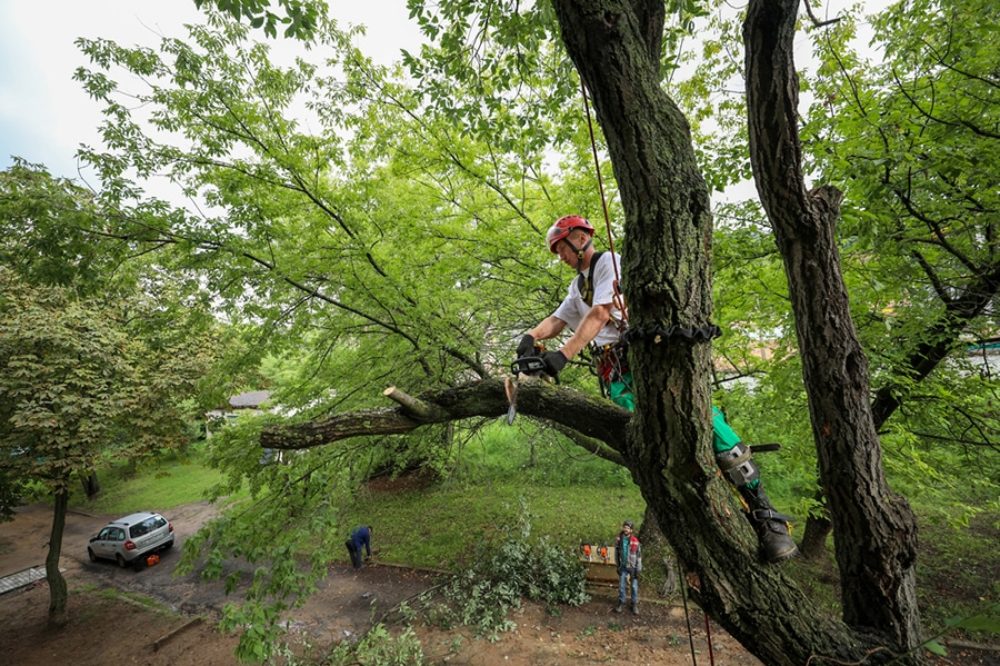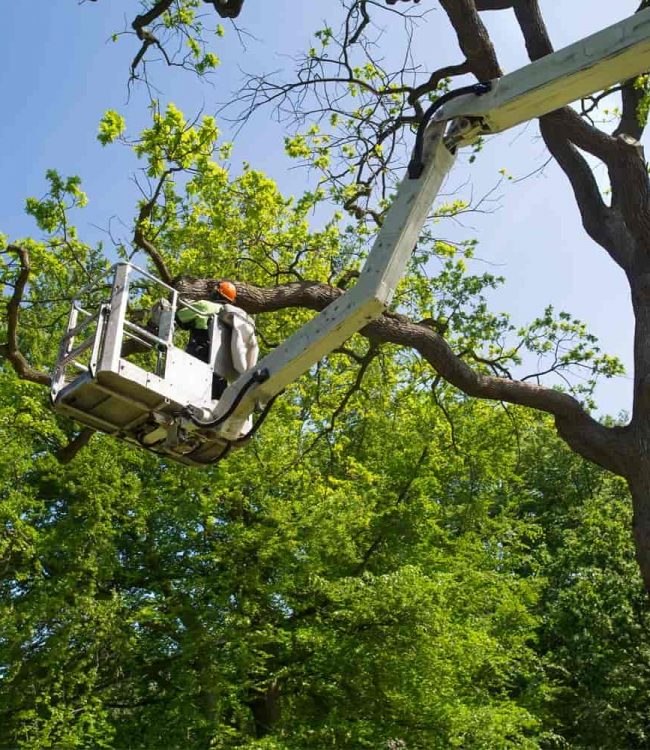A healthy, productive fruit tree is a joy, even if it’s only a couple of scrawny-looking apple trees or a cherry tree growing in your front yard. Even taking care of them can be joyful, especially if it’s something the whole family participates in. Check out the following tips to help care for your fruit trees.
Keep an Eye on Them
It’s important that you inspect the trees frequently. Fruit trees are subject to attack from diseases and pests. This includes everything from bacterial spots to peach leaf curl, powdery mildew, aphids, cankerworms, pear slugs, and the plum curculio. If you find a problem during an inspection, handle it right away.
Add Mulch
Mulch is important for keeping water in the soil around the tree’s roots and keeping down weeds. Mulch such as wood chips break down over time and become nutrition for the tree. Our arborists recommend spreading 2 or 3 inches of mulch in the tree’s root zone and replenishing it as it breaks down. Make sure that the mulch doesn’t touch the flare of the trunk.
Be Sure to Prune and Shape
To produce abundant harvests of healthy fruit, fruit trees need to be trimmed and pruned and their branches need to be spread out. Thinning branches, especially those that are diseased, infested, or not getting enough sun, leaves enough strong, healthy branches for a good, early crop. Spreading out the branches also makes them strong. You can actually put spreaders between branches that have angles that are too narrow or add weights to smaller branches to spread them.
Be Mindful of Watering
You may be tempted to water your fruit trees more frequently than you should, but it’s better to give a tree a deep, infrequent watering than to give it a shallow, daily drink. Watering deeply forces the roots to go deeper, which makes them stronger and healthier. If your soil is sandy, you can water the tree every one or two weeks. If the soil’s clayey, every two or three weeks should do it.
Peoria’s soil is classified as drummer soil, which means it’s black, rich, and loamy. It’s probably best to water every two weeks with such soil. Of course, water more if it’s been dry and a bit less if there’s been a lot of rain.
Don’t Forget to Fertilize
How well your fruit tree is growing and producing will tell you how much or if you need to fertilize it. Some trees need a lot of nitrogen for their first years of growth, while others require minimal nitrogen. Pear trees, for example, seem to need a lot of boron. Compost and rotted manure are good fertilizers for fruit trees if they need it.
Call Central Arbor Tree Care
Peoria’s fertile, loamy soil is excellent for growing many kinds of fruit trees. If you need more tips on how best to care for your fruit trees, give Central Arbor Tree Care a call today.






